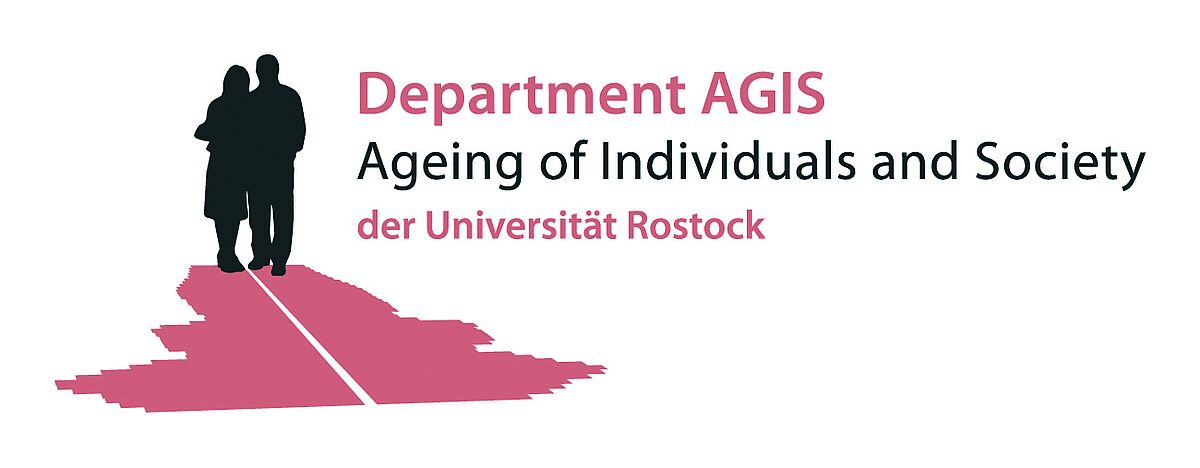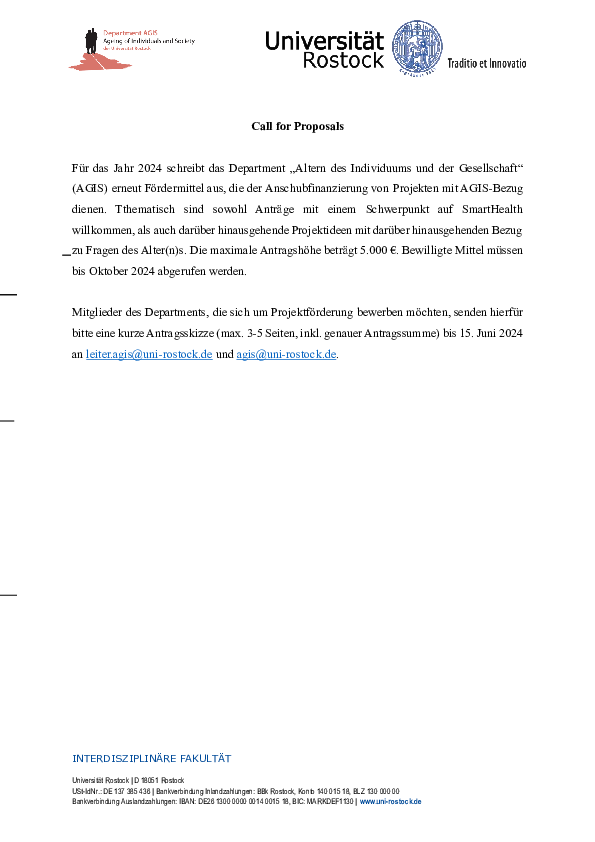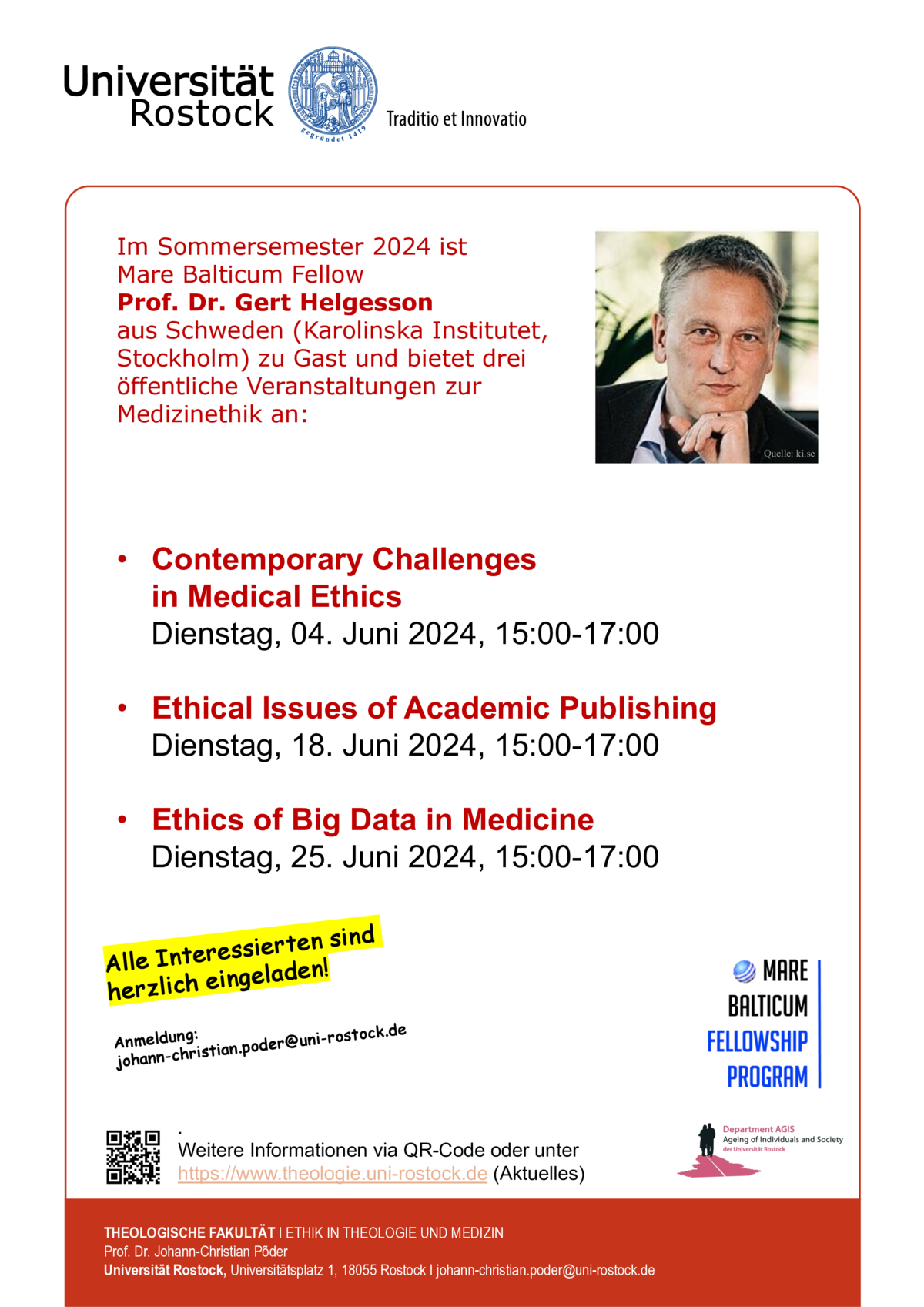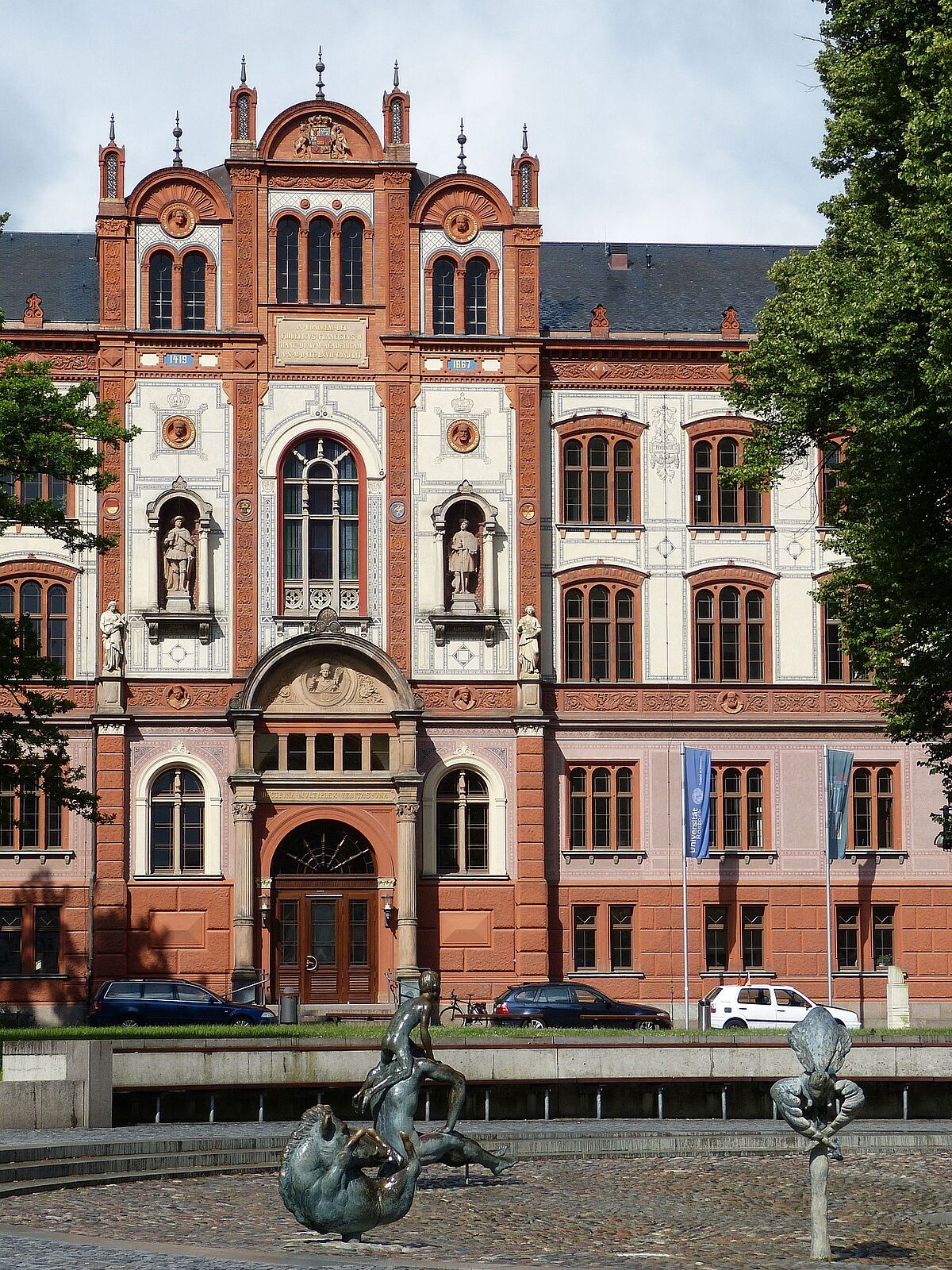Increasing life expectancy and low birth rates significantly change the population structure. The demographic change is considered as one of the major challenges of the modern industrial society. The increasing shortage of junior staff and management staff, the increasing need for care and financing difficulties of social insurance systems are some of the consequences. Social key objective of an ageing society remains the assurance of welfare. This assumes a maintenance of the capacity for innovation, the availability of manpower and the adaptation of institution to demographic changes. Welfare also means enabling an autonomous and self-determined life in old age, healthy and with full participation in society.
The department Ageing of Individuals and Society (AGIS) searches for new solutions – on the level of medical care and therapy forms, in the field of economic and social structures and related to technical assistance systems. Precondition for this is interdisciplinary research based on findings from medicine, humanities and engineering sciences.
Department AGIS
Interdisciplinary Faculty
University of Rostock
Universitätsplatz 1
D-18055 Rostock
leiter.agis@uni-rostock.de
agis@uni-rostock.de
Herzlich willkommen
Neue Mitglieder bei AGIS
Our department has continued to grow over the past few months: We are very pleased that this year we have already welcomed Dr. Sabine Felser (UMR), Prof. Heiner Hastedt (PHF), Prof. Christian Haubelt (IEF), Prof. Christian Junghanß (UMR), JProf. Anne-Kristin Kuhnt (WSF) and JProf. Dr. Rouven Seifert (WSF) as new members.
A warm welcome to all new members at AGIS!
Call for Proposals
Seed funding for research projects
For the year 2024, our department is allocating funds for the initial financing of projects related to AGIS (maximum application amount: 5,000 EUR; application deadline: June 15, 2024). Further details can be found in the Call for Proposals.
All members of the department who wish to apply for funding should send a brief project outline (max. 3-5 pages, including the exact requested amount) by June 15, 2023, to leiter.agis@uni-rostock.de and agis@uni-rostock.de.
Mare Balticum Fellow 2024
AGIS welcomes its fellow Prof. Gert Helgesson
The University of Rostock is pleased to welcome Prof. Gert Helgesson from the Karolinska Institute (Sweden) as part of the Mare Balticum Fellowship Program. Gert Helgesson is a Professor of Medical Ethics in the Department of Learning, Informatics, Management, and Ethics at the Karolinska Institute in Stockholm.
In June 2024, Gert Helgesson will be in Rostock as a Mare Balticum Fellow of the AGIS Department.
General Meeting & Election of Board
Next general meeting of AGIS members on April 10, 2024
On Wednesday, April 10, 2024, from 9:00 a.m. to 12:00 p.m., the Department AGIS cordially invites all its members to the next general meeting.
As part of the meeting, the new board of the department will also be elected.
New Graduate School SYLOBIO (DFG)
DFG grants funding for graduate school analyzing biomaterial intolerance in artificial joints
The German Research Foundation (DFG) has granted funding for the graduate school "Systemische und lokale Reaktionen bei Unverträglichkeit gegenüber Biomaterialien für Gelenk- und Hautläsionen" (Systemic and local reactions in the event of intolerance to biomaterials for joint and skin lesions, SYLOBIO) - our heartfelt congratulations are extended to AGIS board member Prof. Rainer Bader for this remarkable success! The establishment of SYLOBIO is a proactive response to the escalating significance of artificial joints in meeting the healthcare needs of the population. The primary objective of SYLOBIO is to meticulously characterize the fundamental mechanisms that give rise to both systemic and local intolerance to biomaterials and to analze the significance of said intolerances for subsequent neurodegenerative diseases.
This collaborative effort with the University of Greifswald is poised to commence its research endeavors in spring 2024 and is set to span an initial duration of four years. For those seeking more information, please feel free to reach out to the spokesperson of the graduate school Rainer Bader.





